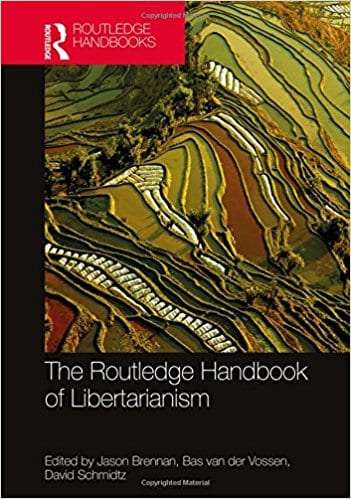The Volokh Conspiracy
Mostly law professors | Sometimes contrarian | Often libertarian | Always independent
Introduction to the symposium on the "Routledge Handbook of Libertarianism"

Asking what is libertarianism is more like asking what distinguishes Georgetown from Foggy Bottom than asking how the White House fits together. Libertarianism is a body of related views; it has the unity of a neighborhood more so than a house.
There are such things as libertarian conclusions. Libertarians conclude, for one reason or another, that each individual ought to be imbued with a wide sphere of personal and economic rights against interference from others, that such rights cannot easily be overridden, and that the justifiable role of government is small. (The government may not be small in other ways, but it will be small in scope.) Libertarians get to these conclusions in different ways. But that's what libertarians believe in a nutshell.
Why they believe it varies from libertarian to libertarian. I've heard from critics that libertarians assume a controversial view of self-ownership and derive everything from that. I've never seen an academic libertarian make that move, not even Robert Nozick, despite rumors to the contrary.
At any rate, contemporary libertarian thought-at least among academic political scientists, philosophers, and economists-has more in common with Adam Smith's classical liberalism than what we see in Murray Rothbard or Nozick. Adam Smith, David Hume, and other early classical liberals saw themselves as philosophers studying the humane sciences, which encompassed and integrated the fields we would now call philosophy, economics, political science, and sociology. Interestingly, the majority of the libertarian scholars we invited to participate in this volume would call themselves specialists in "politics, philosophy, and economics" or "PPE". Adam Smith famously began the Wealth of Nations by extolling the division of labor, but contemporary libertarian scholars seem to think the division of intellectual labor-in particular, dividing the questions of what's just from the question of what works-has gone too far. It is as if we said, "The job of philosophy is to ponder how unfair it is that some people have green lights and some people have red lights. But to really focus on the deep theoretical, conceptual, ideal theory issue, we have to set aside practical problems like how to manage traffic."
The Routledge Handbook of Libertarianism is meant to explore the contours of libertarian (also sometimes called classical liberal) thinking on justice, institutions, interpersonal ethics, government, and political economy. We've invited libertarianism's leading critics to say what they think libertarians get right, and leading libertarians to say what they think libertarians get wrong. We've asked scholars to help us rethink what libertarianism has been and could be, and why it matters.
Picking a favorite paper from this would be like asking which child I love best. But regardless, I can say with full confidence that there are a number of papers in this volume which render certain debates moot and obsolete.
Jason Brennan is the Robert J and Elizabeth Flanagan Family Chair of Strategy, Economics, Ethics, and Public Policy at Georgetown University. He is the author of nine books, including two forthcoming in 2018: When All Else Fails (Princeton University Press) and In Defense of Openness, with Bas van der Vossen (Oxford University Press).


Show Comments (0)